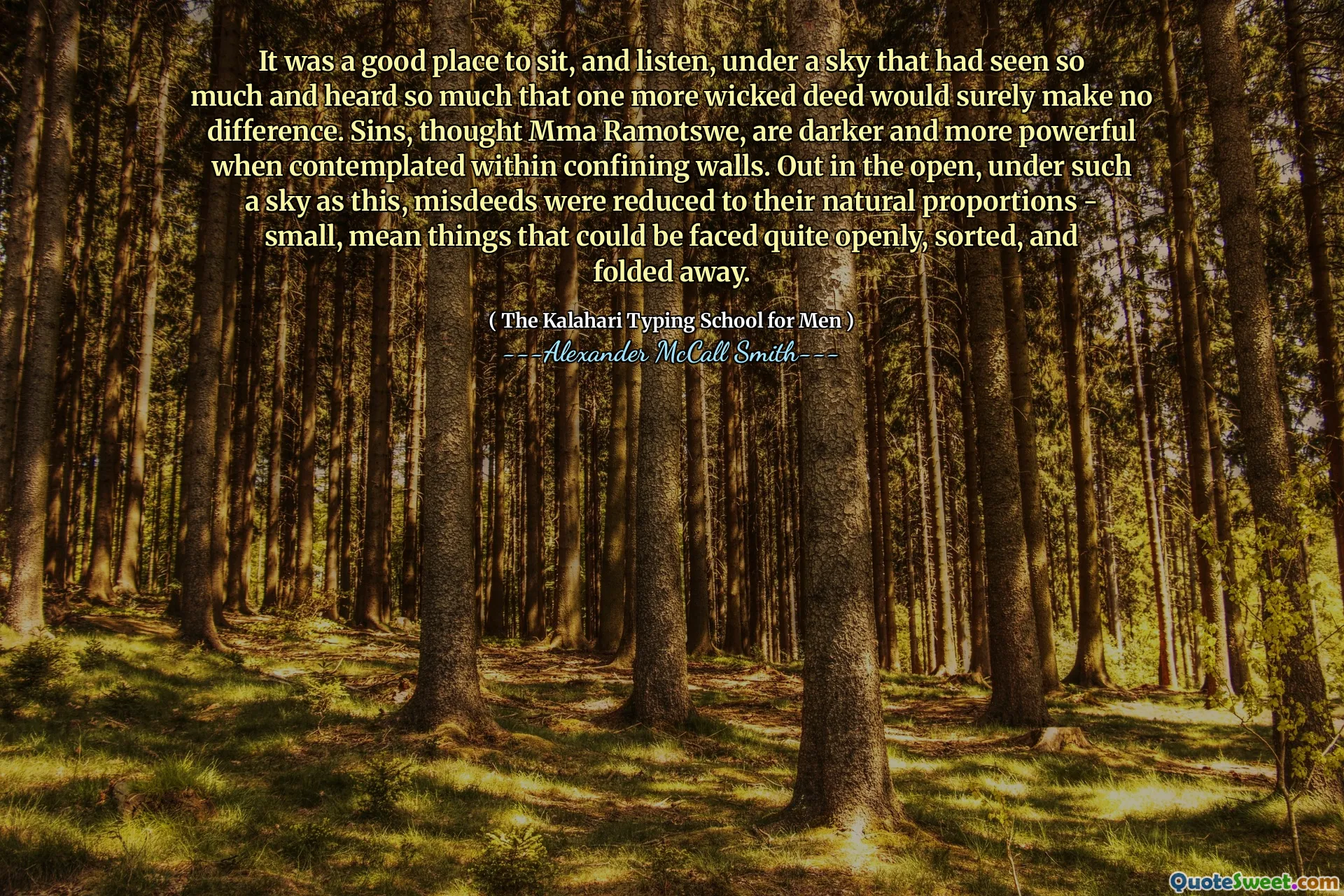
It was a good place to sit, and listen, under a sky that had seen so much and heard so much that one more wicked deed would surely make no difference. Sins, thought Mma Ramotswe, are darker and more powerful when contemplated within confining walls. Out in the open, under such a sky as this, misdeeds were reduced to their natural proportions - small, mean things that could be faced quite openly, sorted, and folded away.
Mma Ramotswe finds solace in the open sky, reflecting on the weight of human sins. She believes that the vastness of nature diminishes the significance of wrongdoings, making them seem less daunting. In this serene environment, she feels that even the darkest deeds are manageable when viewed from a broader perspective.
In contrast, she perceives that sins are more oppressive when confined within walls. The open air allows for a sense of clarity, enabling her to confront misdeeds and organize her thoughts. This setting serves as a reminder that misbehaviors can be acknowledged and resolved without the heaviness of guilt overshadowing them.











